
The Heartbeat of Trinidad: Downtown Port of Spain
Discover the vibrant blend of history, culture, and modernity in Downtown Port of Spain, the pulsating heart of Trinidad and Tobago's capital.
Downtown Port of Spain is the vibrant core of Trinidad and Tobago's capital city. This bustling area is a blend of rich history, diverse culture, and modern development. As you stroll through its streets, you'll encounter colonial architecture juxtaposed with contemporary buildings, telling the story of a city that has grown and evolved over centuries. The Queen's Park Savannah, located nearby, offers a lush green escape in the middle of the urban sprawl. This vast park is a favorite spot for locals and tourists alike, providing a serene setting for a leisurely walk or a lively cricket match. Don't miss the Magnificent Seven, a row of stunning colonial mansions along the park's perimeter, each with its unique architectural style and history. For a taste of local culture, head to the bustling Independence Square, where vendors sell everything from fresh fruit to handmade crafts. This is also the epicenter of the city's vibrant street food scene. Try a doubles, a local favorite made of curried chickpeas and fried dough, or a refreshing coconut water straight from the source. Art enthusiasts will appreciate the National Museum and Art Gallery, which showcases the nation's history and artistic achievements. For a deeper dive into the local culture, visit the nearby Brian Lara Promenade, a lively area named after the famous cricketer, where you can often catch live music performances and local events.
Local tips in Downtown Port of Spain
- Visit early in the morning to avoid the midday heat and crowds, especially when exploring outdoor attractions.
- Carry cash, as many local vendors and smaller establishments may not accept credit or debit cards.
- Dress comfortably and wear walking shoes, as there is much to explore on foot.
- Stay vigilant with your belongings, as you would in any busy city center.
The Heartbeat of Trinidad: Downtown Port of Spain
Downtown Port of Spain is the vibrant core of Trinidad and Tobago's capital city. This bustling area is a blend of rich history, diverse culture, and modern development. As you stroll through its streets, you'll encounter colonial architecture juxtaposed with contemporary buildings, telling the story of a city that has grown and evolved over centuries. The Queen's Park Savannah, located nearby, offers a lush green escape in the middle of the urban sprawl. This vast park is a favorite spot for locals and tourists alike, providing a serene setting for a leisurely walk or a lively cricket match. Don't miss the Magnificent Seven, a row of stunning colonial mansions along the park's perimeter, each with its unique architectural style and history. For a taste of local culture, head to the bustling Independence Square, where vendors sell everything from fresh fruit to handmade crafts. This is also the epicenter of the city's vibrant street food scene. Try a doubles, a local favorite made of curried chickpeas and fried dough, or a refreshing coconut water straight from the source. Art enthusiasts will appreciate the National Museum and Art Gallery, which showcases the nation's history and artistic achievements. For a deeper dive into the local culture, visit the nearby Brian Lara Promenade, a lively area named after the famous cricketer, where you can often catch live music performances and local events.
Iconic landmarks you can’t miss
Queen's Park Savannah
Discover the beauty and culture of Port of Spain at Queen's Park Savannah, a vibrant urban park perfect for relaxation and exploration.
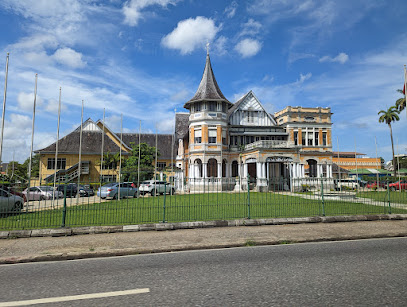
Royal Botanic Gardens
Explore the vibrant flora and serene landscapes of the Royal Botanic Gardens in Port of Spain, a tropical paradise for nature enthusiasts.
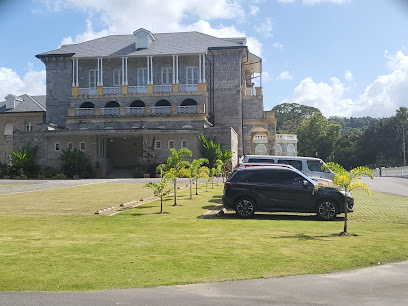
Queen's Park Savannah Grand Stand
Discover the heart of Trinidad's culture at Queen's Park Savannah Grand Stand, where vibrant events and rich heritage come alive.
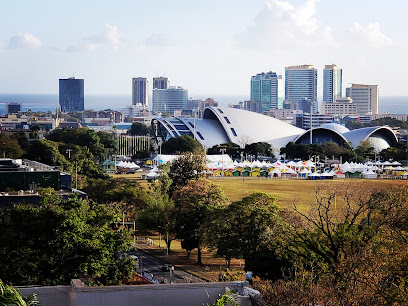
Lopinot Historical Complex
Discover the historical charm of Lopinot, Trinidad, where colonial heritage meets lush landscapes in a captivating tourist attraction.

The Cathedral of the Immaculate Conception
Discover the architectural beauty and spiritual significance of the Cathedral of the Immaculate Conception in the heart of Port of Spain.
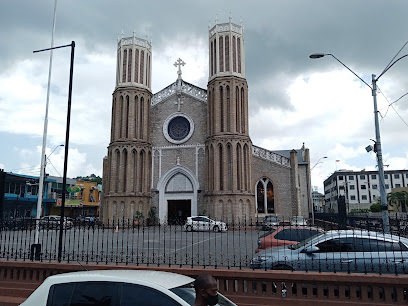
Memorial Park
Discover the tranquil beauty and rich history of Memorial Park in Port of Spain, a serene escape for tourists and locals alike.
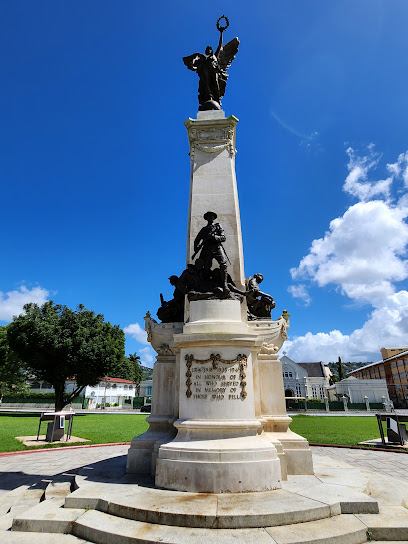
Woodford Square
Discover Woodford Square, a historical landmark in Port of Spain, rich in culture, architecture, and vibrant local life.
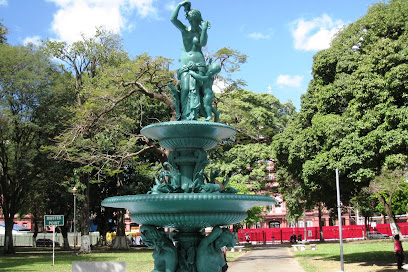
Stollmeyer’s Castle Killarney
Explore the beauty and history of Stollmeyer’s Castle Killarney, a stunning heritage building in Port of Spain, Trinidad, rich with stories of the past.
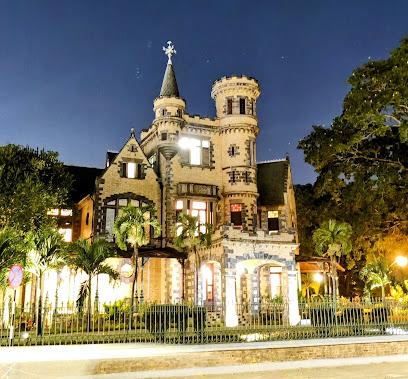
Lord Harris Square
Explore the historical charm and natural beauty of Lord Harris Square, a serene park in the heart of Port of Spain, Trinidad and Tobago.
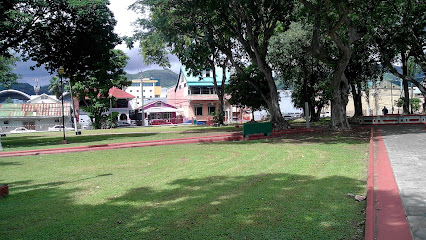
Mille Fleurs
Discover the charm and history of Mille Fleurs, a stunning historical landmark in Port of Spain, Trinidad, rich with architectural beauty and cultural significance.
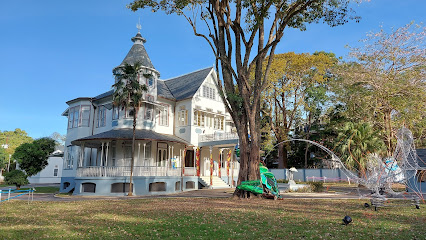
The Red House
Discover the stunning architectural beauty and rich history of The Red House in Port of Spain, a landmark that embodies Trinidad and Tobago's cultural heritage.

Hayes Court
Explore Hayes Court in Port of Spain, a historical landmark that beautifully showcases Trinidad and Tobago's colonial heritage and lush gardens.
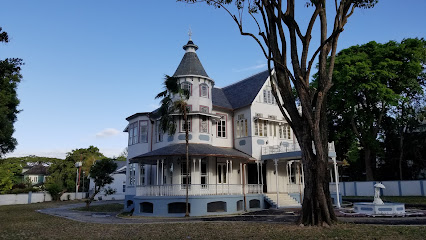
Whitehall
Explore the architectural beauty and historical significance of Whitehall in Port of Spain, a landmark reflecting Trinidad and Tobago's colonial past.
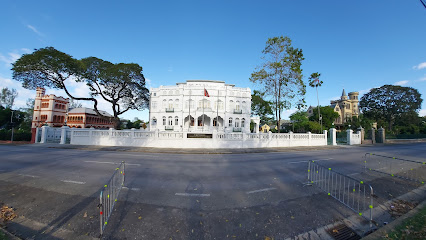
Cabildo Building
Explore the Cabildo Building, a historic gem in Port of Spain, Trinidad, showcasing colonial architecture and rich cultural heritage.
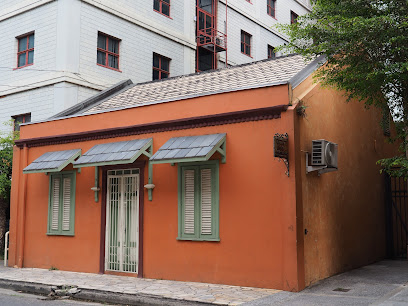
Museum of the City of Port of Spain
Explore the vibrant history and cultural heritage of Trinidad and Tobago at the Museum of the City of Port of Spain, a treasure trove of stories and artifacts.
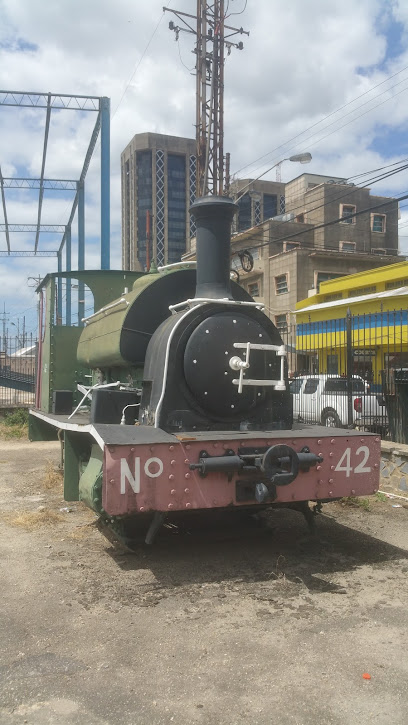
Unmissable attractions to see
Emperor Valley Zoo
Explore the captivating Emperor Valley Zoo, where diverse wildlife meets educational adventures in the heart of Port of Spain.
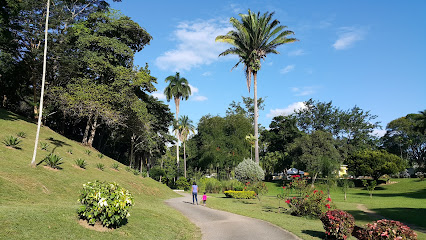
National Museum & Art Gallery
Discover the vibrant art and rich heritage of Trinidad and Tobago at the National Museum & Art Gallery, a cultural gem in the heart of Port of Spain.
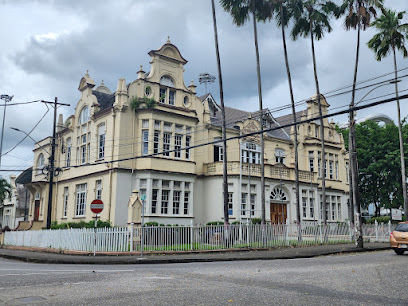
Archbishop’s House
Explore the stunning Victorian architecture and rich history of the Archbishop's House in Port of Spain, Trinidad, a true cultural gem.
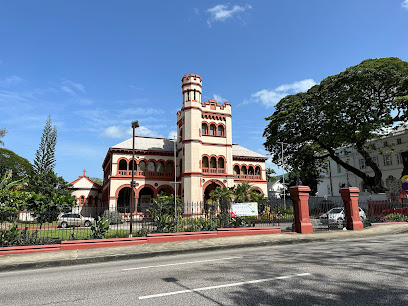
Hayes Court
Explore Hayes Court, a historical landmark in Port of Spain, where Trinidad's rich heritage and architectural beauty come to life in a serene setting.
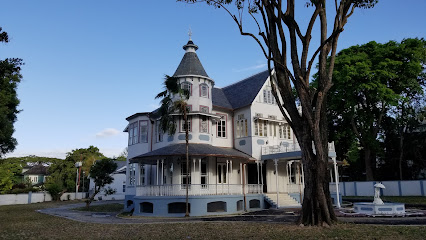
Essential places to dine
Town Restaurant & Bar
Discover the culinary delights at Town Restaurant & Bar in Port of Spain – where local flavors meet global inspirations in a vibrant atmosphere.
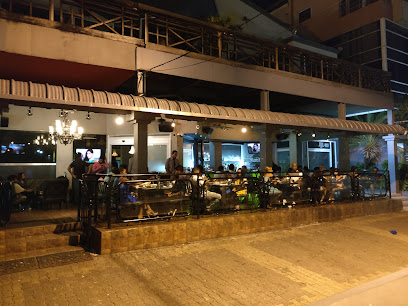
TGI Fridays
Experience the vibrant flavors of America at TGI Fridays in Port of Spain—where good food meets great company!
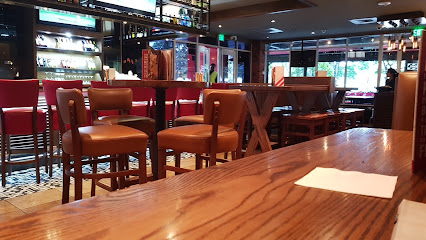
Buzo Osteria Italiana
Experience authentic Italian cuisine at Buzo Osteria Italiana in Port of Spain, where every dish tells a story of flavor and tradition.
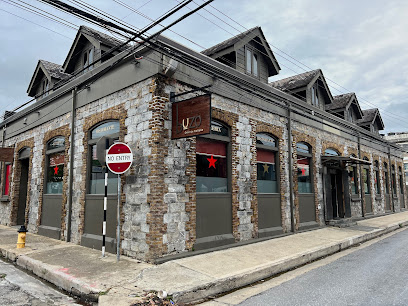
Jenny's on the Boulevard
Discover authentic Caribbean flavors at Jenny's on the Boulevard in Port of Spain – a must-visit dining experience for every tourist.
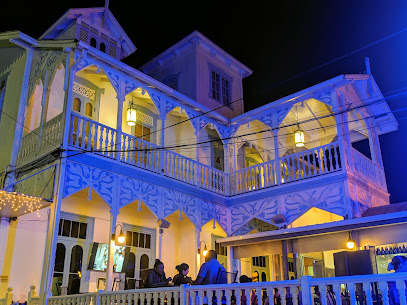
The Auditorium Restaurant and Lounge
Experience exquisite dining at The Auditorium Restaurant and Lounge in Port of Spain—where fine cuisine meets vibrant atmosphere.
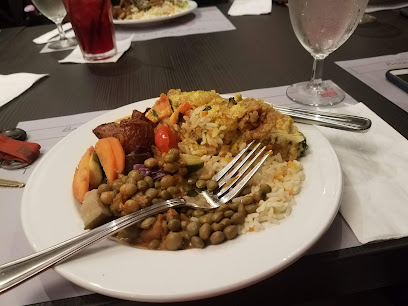
Chaud Café Vite
Discover authentic Trinidadian flavors at Chaud Café Vite in Port of Spain – where every dish tells a story.
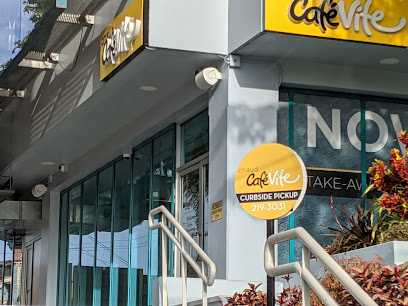
360° Restaurant
Experience exquisite dining at 360° Restaurant in Port of Spain with stunning views and delightful local cuisine.
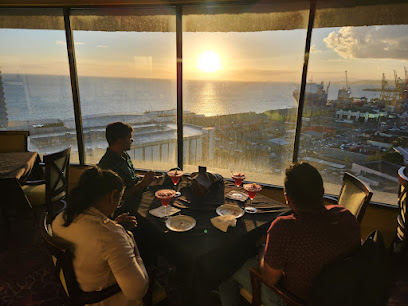
Damian's Restaurant
Experience authentic Caribbean flavors at Damian's Restaurant in Downtown Port of Spain – where every dish tells a story.
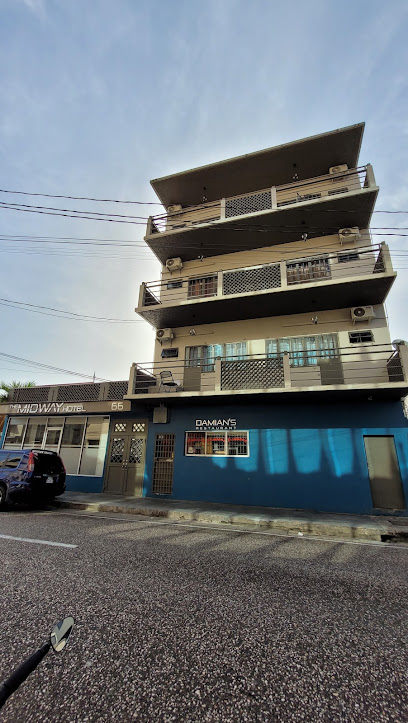
Bites by Virg
Experience the vibrant culinary scene at Bites by Virg in Port of Spain – where local flavors meet global cuisine in an inviting atmosphere.

Sandra's Gourment Delight
Experience authentic Trinidadian cuisine at Sandra's Gourmet Delight in Port of Spain, where every dish tells a story.

Markets, malls and hidden boutiques
Excellent City Centre
Discover a shopping paradise at the Excellent City Centre, where local culture and international brands meet in the heart of Port of Spain.
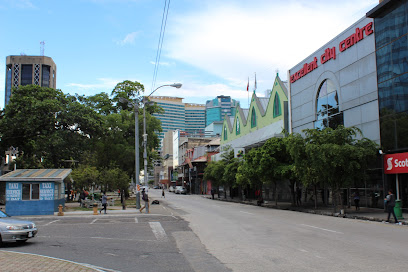
Shoppes of Maraval
Explore the Shoppes of Maraval for an exciting blend of shopping, dining, and entertainment in the heart of Port of Spain.
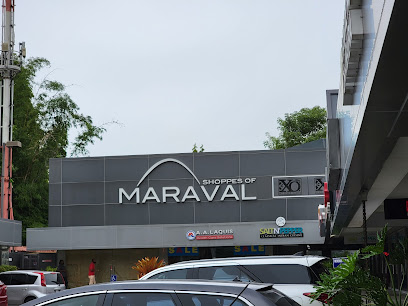
Espermaria Plaza
Discover Espermaria Plaza: A vibrant outlet mall in Port of Spain blending shopping, culture, and local charm.
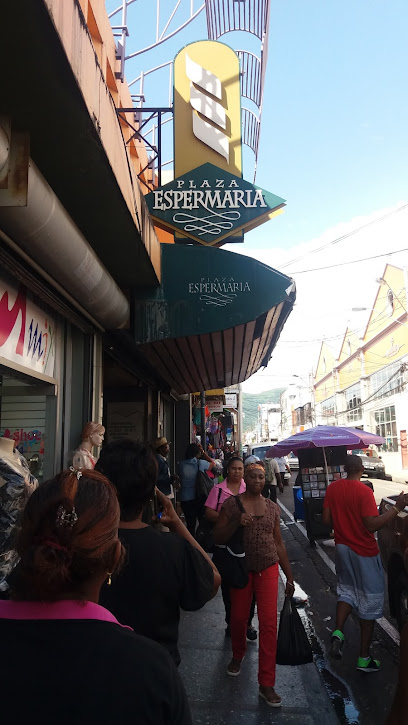
Wow Fashion
Discover the latest fashion trends and unique finds at Wow Fashion in Port of Spain, your one-stop shop for stylish clothing and accessories.
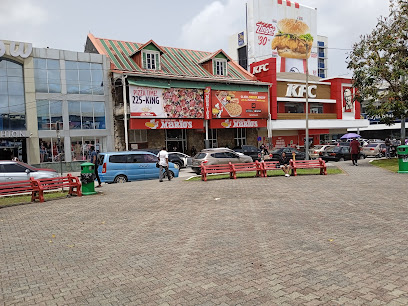
Khemlani's Souvenir Shop
Explore Khemlani's Souvenir Shop in Port of Spain for unique Trinidadian gifts, clothing, and local crafts that capture the vibrant spirit of the island.
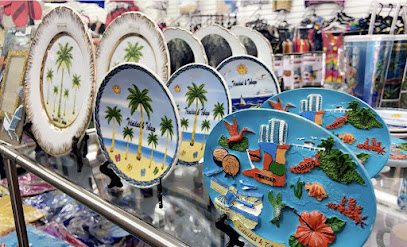
Philippa Boutique
Shop at Philippa Boutique for exclusive women's fashion and accessories, capturing the vibrant spirit of Port of Spain.
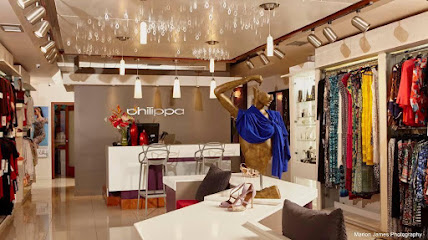
The Kuttage Artisan Boutique
Explore the vibrant craftsmanship of Trinidad at The Kuttage Artisan Boutique, a unique gift shop in Port of Spain.
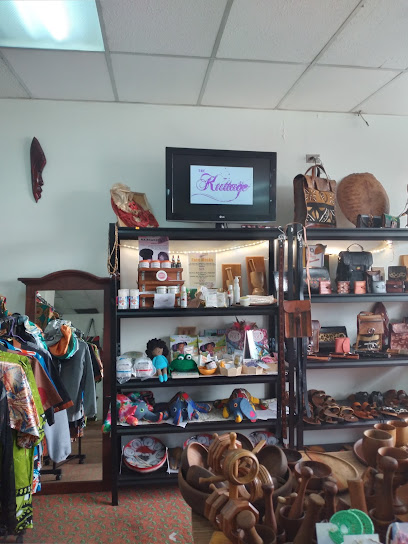
Inkspiration
Explore Inkspiration, Port of Spain's gem for unique gifts and local crafts that celebrate the vibrant culture of Trinidad and Tobago.
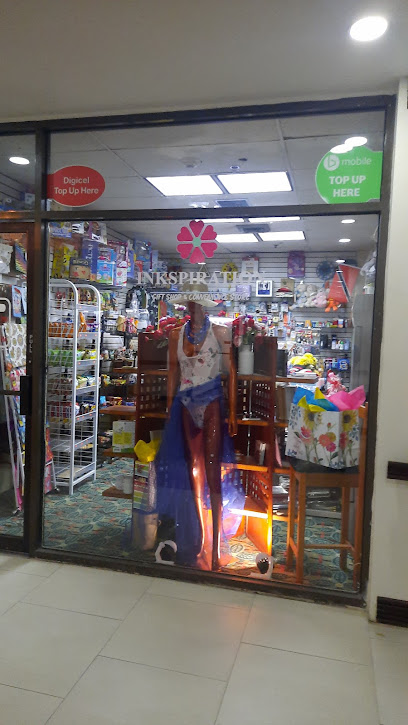
Nick's International Exclusive
Discover the vibrant styles of Trinidad at Nick's International Exclusive, where fashion meets Caribbean flair in the heart of Port of Spain.
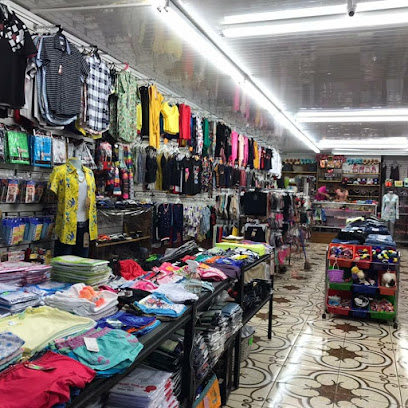
OS2 Designs
Discover unique Caribbean fashion and accessories at OS2 Designs, a boutique in Port of Spain that embodies local artistry and vibrant culture.
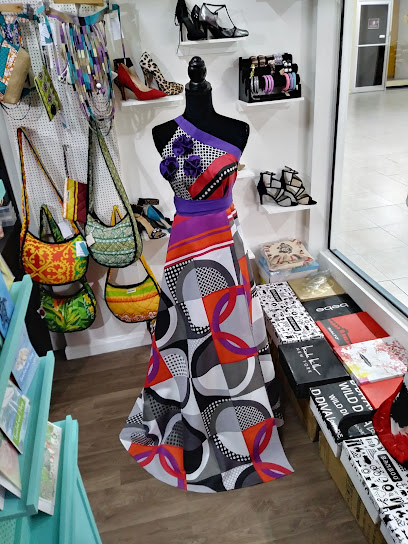
Essential bars & hidden hideouts
Trotters
Experience the lively atmosphere of Trotters, the premier sports bar in Port of Spain, Trinidad, where great food meets exciting live sports.
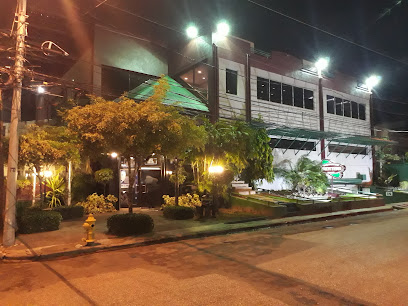
The Lobby @ Strand
Enjoy a vibrant atmosphere and expertly crafted cocktails at The Lobby @ Strand, the perfect bar experience in Port of Spain.
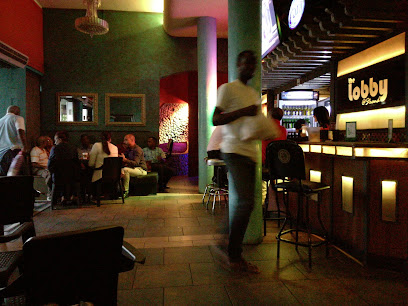
Hereford's Bar
Experience the vibrant nightlife of Trinidad at Hereford's Bar, where local flavors and friendly vibes come together for an unforgettable evening.
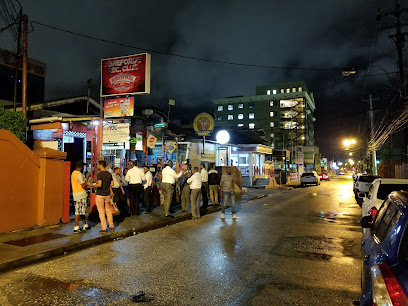
Spill Restaurant & Lounge
Experience the vibrant culture of Port of Spain at Spill Restaurant & Lounge, where delightful cuisine and lively ambiance come together for an unforgettable dining experience.
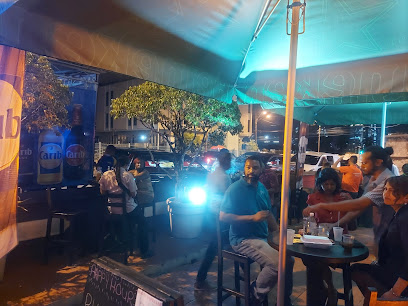
Jenny's Bar
Discover the essence of Trinidadian nightlife at Jenny's Bar in Port of Spain, where vibrant drinks and a friendly atmosphere await.
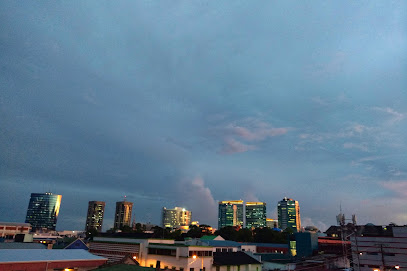
Stanleys Oasis
Experience the vibrant nightlife and refreshing drinks at Stanleys Oasis, the must-visit bar in the heart of Port of Spain, Trinidad.
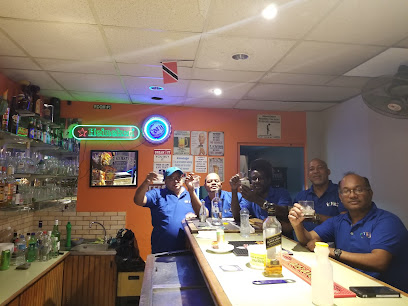
Palms Sports Bar & Lounge
Unwind at Palms Sports Bar & Lounge, your gateway to Trinidad's vibrant nightlife, local drinks, and a welcoming atmosphere in Port of Spain.
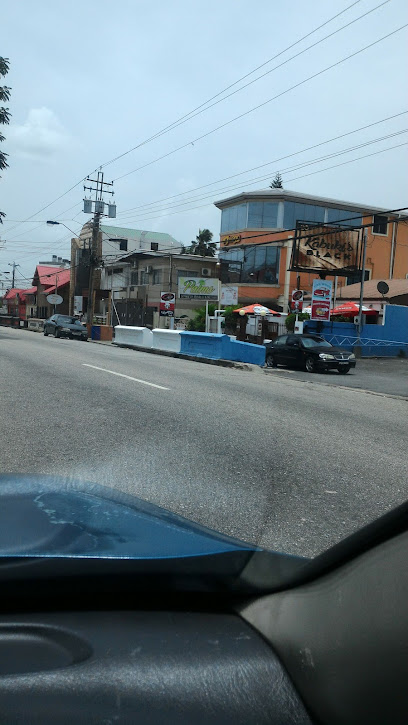
Plan B Bar & lounge
Experience the vibrant nightlife of Port of Spain at Plan B Bar & Lounge, where tasty cocktails and a welcoming atmosphere await.

Duke and Duchess Bar
Experience the vibrant nightlife at Duke and Duchess Bar, a local favorite in Port of Spain, perfect for enjoying cocktails and mingling with friends.

Royal Summer Lounge
Royal Summer Lounge in Port of Spain offers an unforgettable grilled culinary experience amidst a vibrant Caribbean atmosphere, perfect for all food lovers.

Local Phrases
-
- HelloWa la gwaan
[wah la gwaan] - GoodbyeLatah
[lay-tah] - YesYes
[yes] - NoNah
[nah] - Please/You're welcomePleaz
[pleez] - Thank youTank yuh
[tank yuh] - Excuse me/SorrySarry
[sah-ree] - How are you?How yuh stayin?
[how yuh stay-in] - Fine. And you?Ahright. An yuh?
[ah-right. an yuh] - Do you speak English?Yuh talk English?
[yuh talk english] - I don't understandAh eh grasp dat
[ah eh grasp dat]
- HelloWa la gwaan
-
- I'd like to see the menu, pleaseLemme see de menu please
[leh-meh see deh menu please] - I don't eat meatAh doh eat meat
[ah doh eat meat] - Cheers!Cheers!
[cheers] - I would like to pay, pleaseI go pay now, please
[i go pay now please]
- I'd like to see the menu, pleaseLemme see de menu please
-
- Help!Help!
[help] - Go away!Geh way!
[geh way] - Call the Police!Call de Police!
[call de police] - Call a doctor!Call a doctah!
[call a doctah] - I'm lostAh lost
[ah lost] - I'm illAh sick
[ah sick]
- Help!Help!
-
- I'd like to buy...Ah wud like ta buy...
[ah wud like ta buy] - I'm just lookingAh jess lookin
[ah jess look-in] - How much is it?How much dis is?
[how much dis is] - That's too expensiveDat too dear
[dat too dear] - Can you lower the price?Yuh cud drop de price?
[yuh could drop de price]
- I'd like to buy...Ah wud like ta buy...
-
- What time is it?What time it is?
[what time it is] - It's one o'clockIs one o'clock
[is one o'clock] - Half past (10)Half ten
[half ten] - MorningMawnin
[mawnin] - AfternoonAftanoon
[aftanoon] - EveningEvenin
[evenin] - YesterdayYesterday
[yesterday] - TodayToday
[today] - TomorrowTomorrow
[tomorrow] - 1One
[one] - 2Two
[two] - 3Tree
[tree] - 4Foh
[foh] - 5Five
[five] - 6Six
[six] - 7Seven
[seven] - 8Eight
[eight] - 9Nine
[nine] - 10Ten
[ten]
- What time is it?What time it is?
-
- Where's a/the...?Weh de...?
[weh de] - What's the address?Weh de address dey?
[weh de address dey] - Can you show me (on the map)?Yuh cud show me (on de map)?
[yuh could show me (on de map)] - When's the next (bus)?When de next (bus) comin?
[when de next (bus) comin] - A ticket (to ....)A ticket (to ....)
[a ticket (to)]
- Where's a/the...?Weh de...?
History of Downtown Port of Spain
-
The area now known as Downtown Port of Spain was originally inhabited by the Indigenous peoples of Trinidad, including the Arawaks and Caribs. European colonization began in 1498 when Christopher Columbus arrived, but it wasn’t until the British took control in the late 18th century that significant urban development began. Port of Spain was established as the capital in 1757, serving as a key administrative and commercial center for the British Empire in the Caribbean.
-
The 19th century marked a period of economic prosperity for Downtown Port of Spain, largely driven by the cocoa industry. Trinidad became one of the world’s leading cocoa producers, with Port of Spain serving as the hub for cocoa exportation. This boom attracted a diverse population, including indentured laborers from India, whose cultural influences are still evident in the city today.
-
In 1876, the Trinidad Government Railway was inaugurated, connecting Port of Spain to the sugar-producing areas of the island. This development facilitated trade and transportation, further solidifying Downtown Port of Spain's status as a commercial center. The railway station, located in the downtown area, became a vital part of the city’s infrastructure and is a notable historical landmark.
-
The mid-20th century was a time of significant political activism in Downtown Port of Spain, culminating in Trinidad and Tobago's independence from British rule in 1962. The area witnessed various protests and demonstrations advocating for social and economic rights, which played a crucial role in shaping the nation’s political landscape. The Red House, located in Downtown Port of Spain, served as the seat of the parliament and remains a symbol of political history.
-
Downtown Port of Spain is characterized by its vibrant cultural diversity, reflecting the influences of African, Indian, European, and Indigenous cultures. This blend is evident in the annual Carnival celebrations, which feature elaborate costumes, music, and dance. The neighborhood also hosts numerous festivals and events, showcasing traditional arts, crafts, and culinary delights that highlight the rich heritage of Trinidad and Tobago.
Downtown Port of Spain Essentials
-
Downtown Port of Spain is accessible from various neighbourhoods in the city. If you are coming from the north, you can take a taxi or a maxi-taxi, which are shared vans that operate on set routes. Buses also connect Downtown with areas like St. Ann's and Woodbrook. From the airport, taxis are available and the journey takes approximately 30 minutes, depending on traffic.
-
Downtown Port of Spain is best explored on foot due to its compact size and pedestrian-friendly layout. Public transportation includes buses and maxi-taxis, which are affordable and frequent. Taxis are also available but are generally more expensive. Bicycles can be rented from local shops, allowing for a leisurely exploration of the area.
-
While Downtown Port of Spain is generally safe during the day, it is advisable to avoid certain areas at night, particularly around the outskirts of the city where crime rates can be higher. Specific areas, such as some parts of Laventille and Sea Lots, have been known for crimes targeting tourists. Always remain vigilant, avoid displaying valuables, and stay in well-lit, populated areas.
-
In case of emergency, dial 999 for police assistance, or 811 for medical emergencies. Local hospitals are available, including the Port of Spain General Hospital. It is advisable to have travel insurance that covers medical situations. For minor health issues, pharmacies are widely available in Downtown.
-
Fashion: Do dress comfortably and casually, but avoid overly revealing clothing out of respect for local customs. Religion: Do be respectful of religious sites; cover your shoulders and knees when visiting churches. Public Transport: Do give way to the elderly and be courteous. Don't eat or drink on public transport. Greetings: Do greet locals with a friendly smile or nod; handshakes are common. Eating & Drinking: Do try local street food and drinks, but don't refuse offerings as it's considered rude.
-
To experience Downtown Port of Spain like a local, visit the bustling markets such as the Queen's Park Savannah on weekends, where you can enjoy local delicacies. Engage with local vendors and be open to trying different foods. For a unique experience, consider participating in local festivals, especially during Carnival season, to immerse yourself in the vibrant culture. Lastly, explore the nearby art galleries and museums for a taste of local history and contemporary art.
Trending Landmarks in Downtown Port of Spain
-
Queen's Park Savannah
-
Royal Botanic Gardens
-
Queen's Park Savannah Grand Stand
-
Lopinot Historical Complex
-
The Cathedral of the Immaculate Conception
-
Memorial Park
-
Woodford Square
-
Stollmeyer’s Castle Killarney
-
Lord Harris Square
-
Mille Fleurs
-
The Red House
-
Hayes Court
-
Whitehall
-
Cabildo Building
-
Museum of the City of Port of Spain
Nearby Cities to Downtown Port of Spain
-
Things To Do in Tunapuna
-
Things To Do in Chaguanas
-
Things To Do in Couva
-
Things To Do in Arima
-
Things To Do in San Fernando
-
Things To Do in Sangre Grande
-
Things To Do in Princes Town
-
Things To Do in Point Fortin
-
Things To Do in Scarborough
-
Things To Do in Westerhall
-
Things To Do in Grenville
-
Things To Do in Guava
-
Things To Do in Gouyave
-
Things To Do in Victoria
-
Things To Do in Sauteurs













